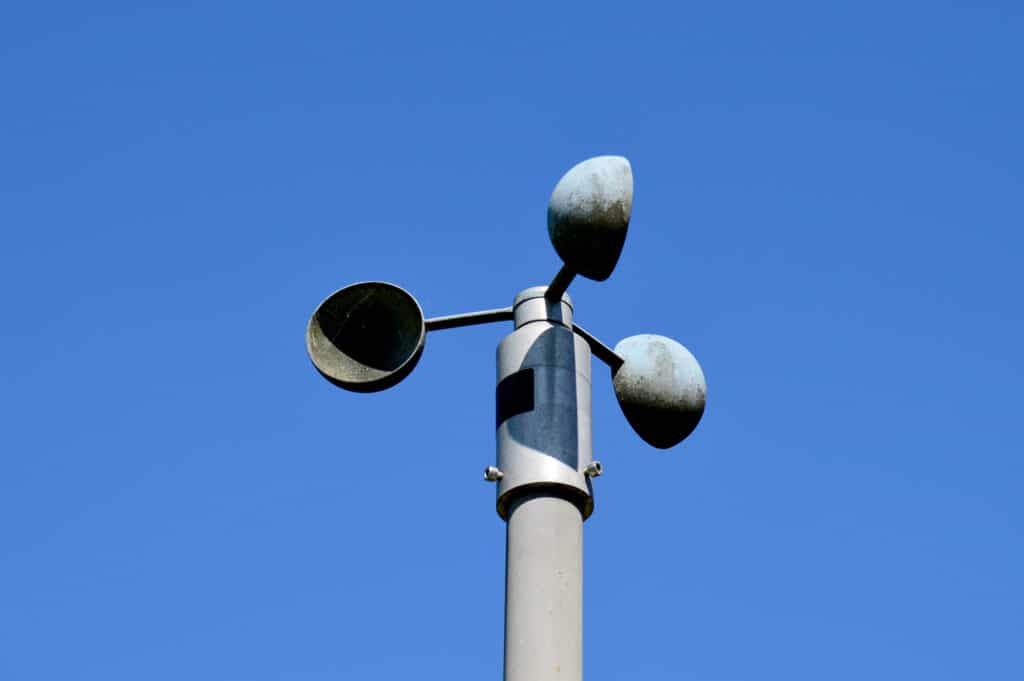All You Need to Understand About Anemometers: Exactly How They Function, Why They Issue, and Where to Use Them
Anemometers, though frequently overlooked in the realm of clinical instruments, play a crucial duty in numerous fields, supplying valuable insights right into wind rate and air flow patterns. As we delve right into the intricacies of anemometer modern technology, we will uncover the internal operations of these gadgets, their significance, and the key considerations when selecting the ideal anemometer for certain applications.

Anemometer Basics
A crucial tool made use of to determine wind rate and direction, the anemometer plays a crucial function in meteorology and numerous industries. An anemometer commonly consists of 3 or four mugs that turn in the wind, a vane that directs into the wind, and sensing units to track the turnings or movements.
There are numerous types of anemometers available, including mug anemometers, vane anemometers, hot-wire anemometers, and sonic anemometers, each with its one-of-a-kind functions and applications. Mug anemometers are typically utilized for standard wind rate measurements, while vane anemometers are liked for directional dimensions.
Concepts of Anemometer Operation
Building on the foundational understanding of anemometer fundamentals, the concepts of anemometer operation clarify the mechanics behind wind speed and direction dimensions. Anemometers run on the concept of air movement impacting a sensor, causing it to turn. Cup anemometers, as an example, have three or more cups that capture the wind, creating them to rotate much faster as the wind rate rises. The turning speed is then exchanged a wind speed measurement. Vane anemometers, on the other hand, utilize a tail or a probe that straightens itself with the wind instructions, supplying a dimension of wind instructions based upon the alignment of the sensor. Hot-wire anemometers rely upon a warmed wire that cools down as wind passes over it, with the rate of cooling identifying the wind speed. Ultrasonic anemometers measure wind rate and instructions by assessing the moment it takes for ultrasonic signals to travel in between transducers. Recognizing these concepts is critical for exact and trusted wind measurements in various applications.
Significance of Anemometers
The relevance of anemometers in weather forecasting and different sectors can not be overstated. Anemometers play a vital role in gauging wind speed and instructions, offering crucial data for weather projecting, environment research studies, ecological monitoring, and aeronautics operations. Meteorologists rely upon Learn More Here anemometers to gather exact wind data, assisting them comprehend climate patterns, anticipate tornados, and concern timely cautions to the general public. In industries such as building and construction, agriculture, renewable resource, and maritime operations, anemometers are utilized to maximize processes, make sure safety, and boost performance. For instance, wind ranch operators utilize anemometers to analyze wind conditions and maximize electrical energy manufacturing from wind turbines. In the maritime industry, anemometers aid ship navigating by providing real-time wind information to captains, assisting them make notified choices to make certain safe voyages. Generally, anemometers are indispensable devices that add substantially to security, effectiveness, and notified decision-making in weather forecasting and a large range of markets.
Applications Across Various Industries
In the eco-friendly power field, anemometers play a vital duty in analyzing wind problems for wind ranch positionings, making sure ideal energy production. Industries like building and mining use anemometers to keep track of wind speeds, important for security procedures, particularly when functioning at elevations or in open-pit mines where solid winds can present dangers. In farming, anemometers aid farmers in taking care of plant splashing by supplying real-time data on wind speed to avoid drift.

Choosing the Right Anemometer for Your Requirements
For basic functions, a cup anemometer is appropriate for determining wind rate, while a vane anemometer provides wind direction information. Hot-wire anemometers are ideal for low airspeed dimensions, and ultrasonic anemometers supply high precision and toughness.

Conclusion
In final thought, anemometers play an important duty best site in measuring wind speed and direction across numerous industries. It is essential to take into consideration the significance of anemometers in order to make educated choices when picking the most suitable gadget for gauging wind conditions.
There are different kinds of anemometers readily available, including cup anemometers, vane anemometers, website link hot-wire anemometers, and sonic anemometers, each with its unique attributes and applications. Cup anemometers are frequently used for fundamental wind speed measurements, while vane anemometers are favored for directional dimensions. Hot-wire anemometers are suitable for low airspeeds, and sonic anemometers are excellent for high-precision dimensions in study and industrial settings.Structure on the foundational understanding of anemometer essentials, the principles of anemometer operation elucidate the auto mechanics behind wind speed and instructions dimensions. For basic functions, a mug anemometer is appropriate for determining wind speed, while a vane anemometer supplies wind direction data.
Comments on “Why an Anemometer is Necessary for Your Environmental Information Collection”